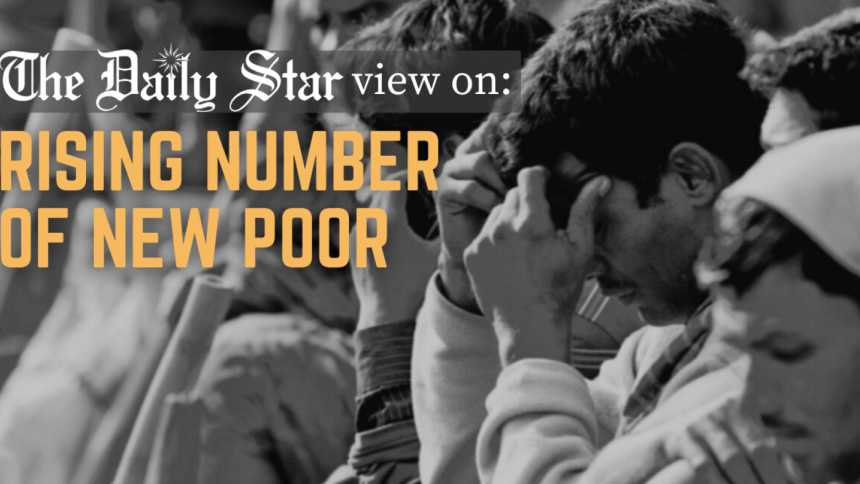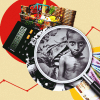2.1 million new poor in five months!

A new study has confirmed what we have been fearing all along – that the number of "new poor" has increased between January and May of this year. After two years of Covid-induced hardships, all had hoped for a speedy recovery of the economy as well as of people's lives and livelihoods. Such hopes soon turned to despair, with unbridled inflation wreaking havoc on people's lives and eating away at their ever-shrivelling incomes.
According to a multisectoral research report titled "Inflation, Coping and Recovery Challenges," jointly prepared by the Power and Participation Research Centre (PPRC) and the Brac Institute of Governance and Development (BIGD), the number of new poor in the country stands at 30.9 million, which is 18.54 percent of the population. A year ago, the same researchers found that the pandemic had pushed 24.5 million people – 14.75 percent of the country's population – into poverty in one year.
The findings, based on a survey of 3,910 households, show that most of the surveyed households have drastically reduced their consumption of major food items; in fact, as many as one in five urban households said they had to skip at least one meal in the last month, while two-thirds of the respondents had to cut back expenditures on healthcare and children's education. Thirty-eight percent need to borrow money but cannot do so because they are already struggling to repay their existing debts.
We seem to have ushered in a new era of inflation inequality, in which poor households are having to bear the brunt of rising costs, and more and more new poor are being created. But the question is: Is the government taking note of people's lived realities, or is it content simply touting inflated figures of GDP growth and per capita income? Unfortunately, we are yet to see any active effort from the government to even count these people in official statistics, much less make targeted interventions to bring them out of poverty by providing stimulus packages or including them in various social protection programmes.
The respondents noted that they were in need of TCB food supply, but 50 percent of them said they could not buy what they needed from the trucks because of a lack of opportunity, lack of TCB family cards and trucks, and long waiting time in the queues. A whopping 57 percent respondents believed that the government should take stern action against market manipulators to stabilise prices. We agree wholeheartedly with the proposals put forth by the households most affected by the inflation. In addition to addressing the governance oversights, the government must prioritise the realities and needs of these vulnerable groups as it finalises the national budget, scaling up targeted social protection programmes, creating new jobs, and providing policy support to revitalise local economies and SMEs.

 For all latest news, follow The Daily Star's Google News channel.
For all latest news, follow The Daily Star's Google News channel. 








Comments